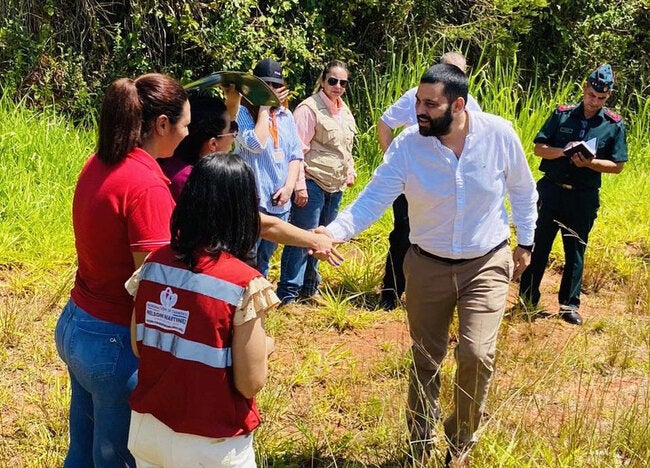Strengthening the health workforce
Approximately 1 300 health workers participated in Ministry of Public Health training courses, which were supported by PAHO/WHO. Training took place on monitoring strategies, early case identification, activating control protocols for disease outbreaks, and implementing early warning systems and communication networks for immediate responses to health emergencies. As a result, health workers have increased their technical capacity in epidemiological surveillance and rapid response to epidemic outbreaks such as dengue, tuberculosis, leishmaniasis, and measles. This has improved control and mitigation of the spread of these diseases and strengthened the planning of preventive actions to minimize their impact.
Already, people’s health is improving and lives are being saved. Following a WHO training, doctors were able to recognize and treat meningitis, saving the lives of two patients. And after a training on identifying measles outbreaks, health workers followed up on several suspected local cases which later proved to be negative.
Other training topics included the control and prevention of noncommunicable diseases such as hypertension and cervical cancer; cessation of smoking; mental health surveillance; hospital waste management; oral health; and quality of care and patient safety.
“Now I feel good, I feel happy, because if someone comes at night with high blood pressure, I have everything to attend to them. I also have the resources to provide first aid, and I can administer first aid,” said Natalia Saucedo, responsible for the Dispensary Tekohá Y’ Apo from the Ava Guaraní Indigenous Community.
The 2024-2030 Health and Human Resources Training Plan for the XIV Canindeyú Health Region, developed with support from PAHO/WHO, has further strengthened competencies with an emphasis on comprehensive health care and a life-course approach. As a result, health workers have improved skills to provide integrated, people-centred care and can foster more collaborative and networked ways of working. Knowledge management tools such as virtual tools, telemedicine, and telehealth, among others, have been promoted and disseminated to support effective health service delivery.
